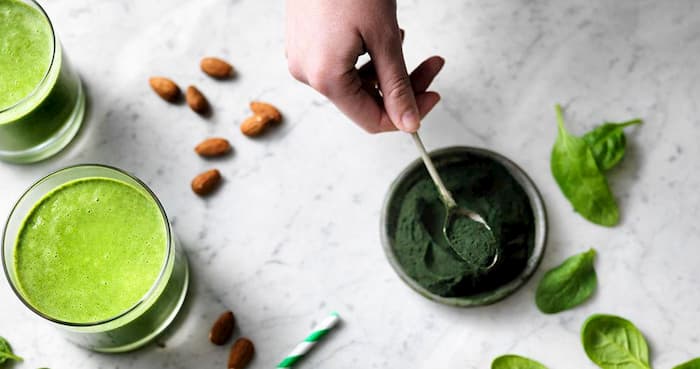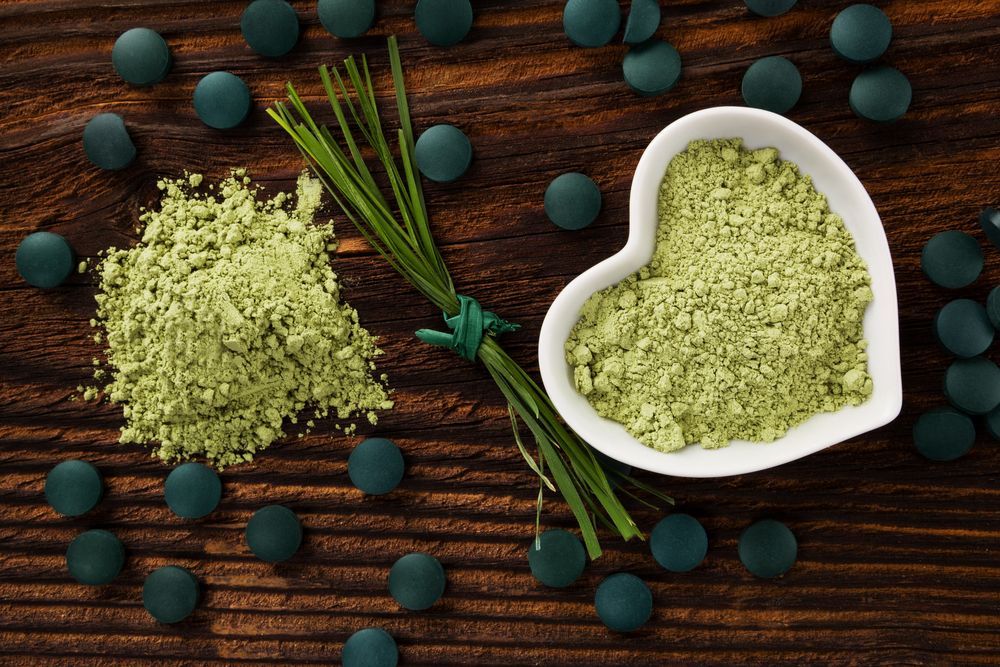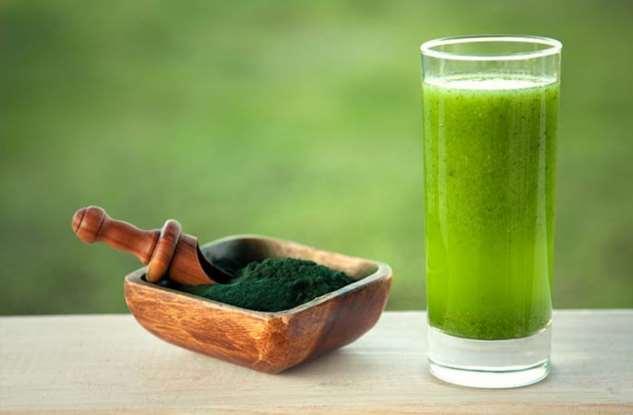The beneficial properties of spirulina will really help to become slimmer, but it still cannot be considered a panacea for severe forms of obesity.
The cleansing functions of blue-green microalgae have a beneficial effect on the gastrointestinal tract and help better digestion of food. In addition, the high protein content quickly gives a feeling of satiety and dampens the feeling of hunger for a long time.
Spirulina speeds up the metabolism, normalizing the even distribution of proteins, fats and carbohydrates. Therefore, the food that comes with the dietary supplement will not turn into fat deposits in problem areas of the body.
The course of taking spirulina for weight loss usually lasts from three weeks to a month, but can be continued as directed by a nutritionist. For maximum results, microalgae intake must be combined with a proper diet, physical activity, and drinking plenty of fluids.

Spirulina for children
Microalgae are very useful for a growing organism, as they represent the whole complex of essential nutritional components. Spirulina has an ideal ratio of amino acids, which is a necessary condition for the proper development of a growing organism. Blue-green algae are a natural product, easily digestible and serve as an excellent prevention of hypovitaminosis.
Spirulina is a source of iron, so the supplement is recommended for children to prevent anemia. It maintains hemoglobin levels and improves health in the autumn-winter period of colds and viral diseases.
Blue-green algae are able to overcome the increased cravings for sweets, so they are perfect for children with a sweet tooth. However, you should still take precautions and give your child a dietary supplement after consulting a doctor.
Spirulina during pregnancy
During pregnancy, most pharmacological preparations are contraindicated for a woman, but spirulina is one of the few supplements allowed during childbearing. Microalgae do not contain harmful chemical impurities, are non-toxic and hypoallergenic.
The benefits of spirulina for women’s health have been proven by a number of medical studies. Spirulina is recommended at the stage of pregnancy planning, as it prepares the body of the expectant mother well for the difficult period of pregnancy.
Blue-green algae removes salts of heavy metals, cleansing the body of toxins and saturating it with valuable micronutrients. Thanks to spirulina, women during pregnancy do not suffer from toxicosis and do not experience weakness, and after the birth of a child, they easily return to their previous weight. Cyanobacteria serve as an excellent prevention of anemia and constipation, which most women suffer from in the third trimester of pregnancy.
Are there any contraindications for taking spirulina?
Spirulina is not a health hazard, but it is contraindicated for people with certain ailments.
Autoimmune diseases. People with rheumatoid arthritis, lupus erythematosus, multiple sclerosis are not recommended to include spirulina in their diet. The supplement activates NK immune cells, which, as a result, the defenses will begin to attack your own body.
Decreased blood clotting. Spirulina has an anticoagulant effect. This can lead to internal bleeding and an increase in the amount of blood lost due to trauma and injury. Spirulina is also incompatible with taking medications designed to thin the blood.
Gastrointestinal ailments in the acute stage. Spirulina is not recommended for people suffering from gastritis, colitis, cholecystitis and pancreatitis, as it can harm and increase the symptoms of these diseases.
Phenylketonuria. Patients with this rare condition should avoid spirulina because it contains phenylalanine, which their body cannot metabolize.
In rare cases, spirulina can cause allergies. People with a history of allergic diseases should be careful about the use of spirulina. They should consult with their healthcare provider before taking the supplement.
It is also worth remembering that spirulina growing in ecologically unfavorable regions can absorb toxic substances. That is why when buying it is important to give preference to products of well-known brands.
How to take
Spirulina is taken between meals, as well as before or after meals. The optimal daily dose of spirulina for prevention is 4 g of powder, for therapeutic purposes – 8 g. Exceeding this dosage is fraught with abdominal pain, nausea, heart rhythm disturbances and increased nervous excitability.
The powder dissolves in a glass of pure water. As for tablets, in this form, spirulina can be taken from 1 to 6 pieces at a time, depending on the weight of the pills, which varies from manufacturer to manufacturer. The supplement is recommended to be taken 1-2 times a day.
The standard duration of admission is 1 month. At the end of the course, you need to take a break for 3 weeks, and then return to taking the supplement again. In this mode, spirulina can be taken continuously.
Microalgae is perfectly absorbed by the body along with food. The only exceptions are dairy, fried and flour foods. To get the most out of spirulina, it should not be cooked, as heat destroys the beneficial properties of the product.
Spirulina goes well with fresh vegetables, fruits and berries, freshly squeezed juices and natural cocktails. Smoothies with spirulina are a good option for a nutritious breakfast that energizes you for the whole day.

Conclusion
Blue-green algae are very popular with athletes and active people leading a healthy lifestyle. The unique composition of spirulina is able to enrich the diet with missing elements, replenish iron deficiency and normalize physiological processes in the body. This valuable source of vegetable protein can be used for weight loss, cleansing and detoxification of the body. Due to the abundance of trace elements and minerals, spirulina maintains efficiency, prevents catabolism, and helps to resist infections and diseases.



